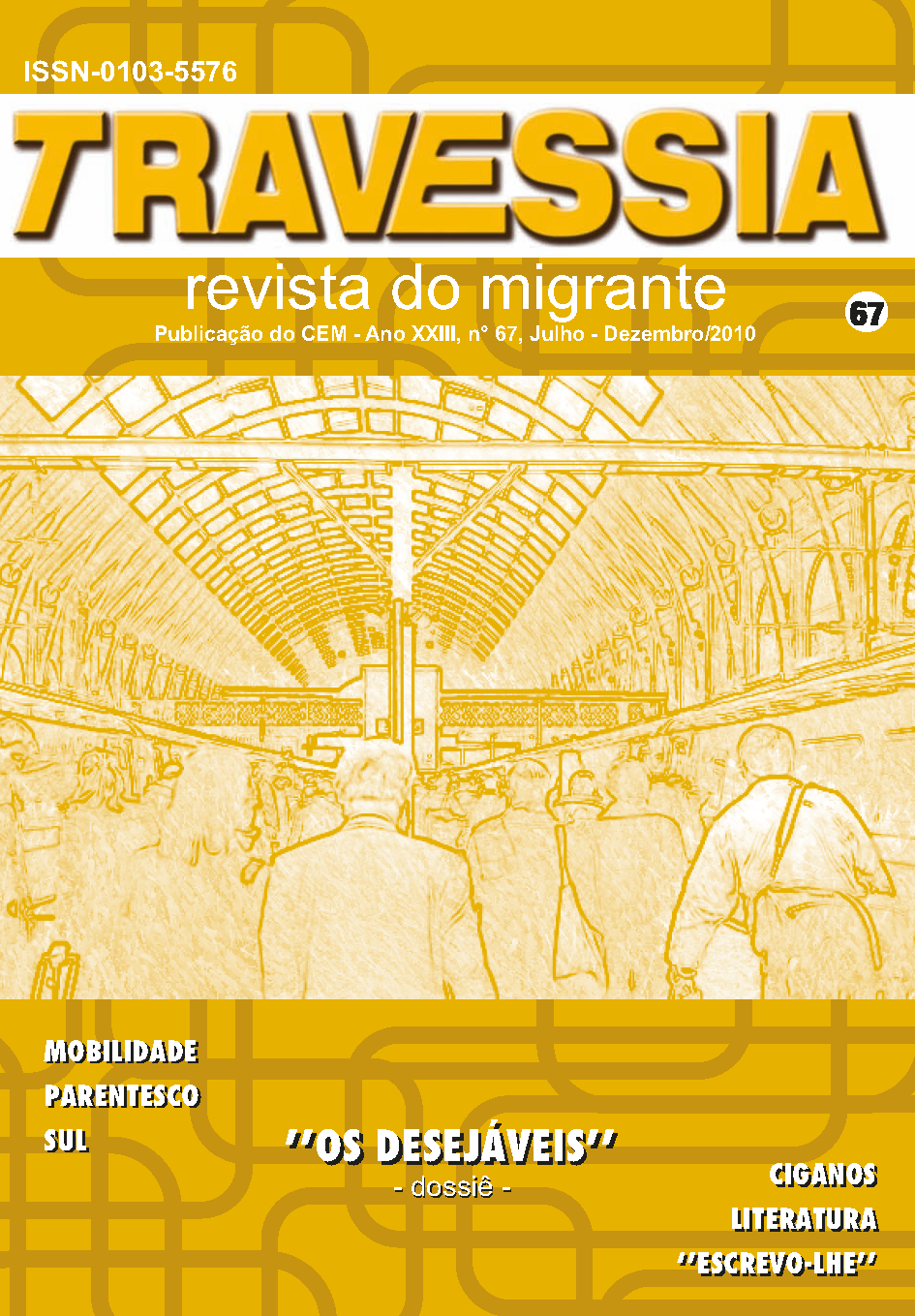Jovens universitários brasileiros nas linhas de produção japonesas
DOI:
https://doi.org/10.48213/travessia.i67.392Keywords:
dekasegui, arubaito, migrationAbstract
Migrati on fl ows of Japanese-Brazilians to Japan, known as Dekasegui Movement, started in the mid ë80s. Throughout a litt le more than two decades of existence, the relevance of this fl ow has been widespread through innumerable research studies conducted about the subject. Researchers in various areas of knowledge analyzed this phenomenon from the diff erent approaches it comprises, and which relate to economy, society, culture, psychology, law, linguisti cs, taxes, educati on, just to name a few. This arti cle focuses on the observati on of the recent phase of the Dekasegui movement, which is characterized by the growing parti cipati on of young university students. Among other aspects, this study discusses the reasons that led Japanese companies that use immigrant workforce to direct their look to these youngsters, as well as the strategies used by recruiting agencies to att ract this segment of the Japanese-Brazilian community. In other words, it seeks an understanding of how young Japanese-Brazilian university students are being selected to work in Japanese producti on lines under the pretext of taking part in vacati on programs, internships or similar acti vities.


